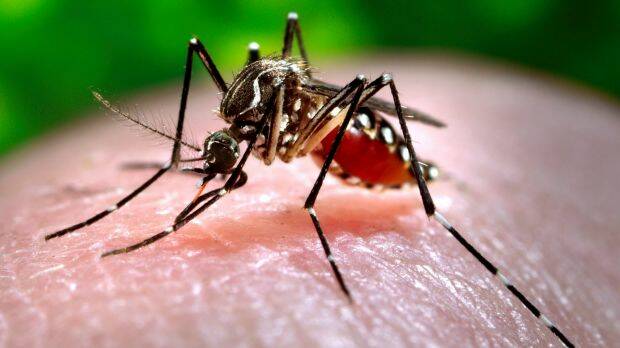
A health alert has been issued for the Katherine region after deadly Murray Valley encephalitis (MVE) virus was activity detected.
Subscribe now for unlimited access.
or signup to continue reading
Residents and visitors are being urged to take precautions to protect themselves against mosquitoes.
As many as one in three patients diagnosed with the disease die from it.
Medical Entomology director Nina Kurucz said the flavivirus surveillance program had detected the virus in chickens in Katherine.
“The chickens are located at the Katherine Research Farm,” Ms Kurucz said.
“There is no vaccine available.
“To avoid mosquito borne disease, use personal mosquito protection and avoid being outdoors in or close to wetland areas or places where mosquitoes are active, especially after sunset,” she said.
Ms Kurucz said while the virus is rare it is extremely serious.
“Since 1974 there have only been 36 cases in the NT,” Ms Kurucz said.
A Katherine child contracted the disease in 2015 and has been left severely impaired, Ms Kurucz said.
In 2011 two people from Katherine contracted the virus, and one died.
Another baby died in Katherine from the virus in 1993.
Ms Kurucz said people who have the virus are unlikely to ever make a full recovery.
The MVE virus is transmitted by the common banded and the floodwater mosquitoes that are mainly active after sundown and in the early morning.
With the recent extensive rain, mosquito numbers are rising, increasing the risk for MVE.
The mosquitoes can occur in pest numbers within a few kilometres of their breeding sites.
They breed in grassy depressions filled with water, seasonal lagoons and wetlands. Both species are also able to transmit Ross River virus.
Murray Valley encephalitis is a rare disease, but can potentially be fatal.
The high risk period for MVE is February to June.
The symptoms can include severe headache, high fever, drowsiness, tremor and seizures (especially in young children).
In some cases the disease can progress to delirium, coma, permanent brain damage or death.
To minimize the chance of being bitten by mosquitoes, people should:
- use a protective repellent containing 20 per cent DEET or Picaridin as a supplement to protective clothing when outdoors in mosquito prone areas
- wear light-coloured clothing with long sleeves, long trousers and socks, between dusk and dawn in areas where mosquito bites are likely
- avoid outdoor exposure around dusk and at night near areas of dense vegetation and other areas of high mosquito activity
- use mosquito-proof accommodation and camping facilities at night
- use mosquito coils, mosquito lanterns and barrier sprays containing bifenthrin in patio and outdoor areas near houses
- ensure children are adequately protected against mosquitoes.


